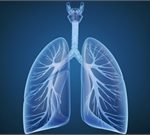
The new coronavirus is not just a physical health threat. The stress, anxiety, fear and isolation that go along with it also take a toll on your mental well-being. “One of the basic tenets of how to manage your mental health in a crisis like this is to ensure that you’re taking care of your own basic needs — taking breaks, having rest and sleep, getting adequate nutrition, exercising and having compassion for yourself and others,” said Dr. Itai Danovitch. He’s chairman of the department of psychiatry and behavioral neurosciences at Cedars-Sinai in Los Angeles. Danovitch suggested creating a daily schedule with separate blocks of time to work, relax, play and eat. “It helps to ensure that the day doesn’t get consumed by worrying, because our fear and our worries, when we don’t have control over them, can sometimes have the effect of overtaking other activities,” Danovitch said. He said it’s important to acknowledge your emotions — it’s OK to worry and it’s OK to have fear. “On the other hand, we want to try to put a container around them so that they don’t consume all the other components of the day,” Danovitch said in a Cedars-Sinai news release. “We want to be deliberate about trying to have those other experiences that we talked about — self-care and connection.” When seeking news and information… read on >



























-300x200.jpg)










